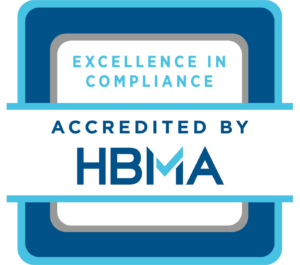Crucial for ensuring accurate billing and timely reimbursement
Preventing coding denials in the healthcare revenue cycle is crucial for ensuring accurate billing and timely reimbursement. Coding denials can occur due to various reasons, including incorrect diagnosis and procedure codes, lack of documentation, and coding guideline non-compliance. Here are some steps to help prevent coding denials
Hire and Train Competent Coders
- Employ certified medical coders with a strong understanding of ICD-10, CPT, and HCPCS coding systems.
- Provide ongoing training and education to keep coders up-to-date with the latest coding guidelines and updates.
Regular Coding Audits
- Conduct regular internal coding audits to identify and correct coding errors before claims are submitted.
- Use coding audit findings to provide feedback and training to coding staff.
Documentation Improvement
- Collaborate with healthcare providers to improve clinical documentation quality.
- Ensure that medical records accurately reflect the patient’s condition, procedures performed, and medical necessity.
Coding Guidelines Compliance
- Stay updated with the latest coding guidelines and policies issued by CMS (Centers for Medicare & Medicaid Services) and other relevant authorities.
- Ensure that coders adhere to these guidelines in code selection and assignment.
Code Validation Tools
- Implement coding validation software or tools that can help coders identify potential coding errors in real-time.
- These tools can prompt coders to double-check and correct any discrepancies.
Clear and Accurate Superbills
- Implement coding validation software or tools that can help coders identify potential coding errors in real-time.
- These tools can prompt coders to double-check and correct any discrepancies.
Regular Provider Training
- Conduct training sessions for healthcare providers to educate them about coding requirements and the impact of accurate documentation on revenue.
Pre-submission Reviews
- Perform a pre-submission review of claims to verify that codes are accurate and supported by appropriate documentation.
- Correct any errors or discrepancies before sending claims to payers.
Denial Analysis and Feedback
- Analyze denial trends to identify common coding-related issues.
- Use this data to provide feedback to coding staff and implement process improvements.
Utilize Coding Resources
- Utilize coding resources, such as coding books, coding software, and coding associations, to support accurate code assignment.
Stay Informed About Payer Policies
- Regularly check payer websites and resources to stay informed about specific coding and documentation requirements for each insurance company.
Engage in Continuous Improvement
- Continuously monitor coding and billing processes for opportunities to improve accuracy and efficiency.
- Be open to making necessary adjustments based on performance data and feedback.
Collaborate with Payers
- Establish open lines of communication with payers to clarify coding and billing requirements.
- Address any coding-related issues or discrepancies proactively.
By implementing these strategies, healthcare organizations can reduce the likelihood of coding denials, improve revenue cycle management, and ensure compliance with coding and billing regulations. Regular communication, education, and process improvement are key to preventing coding-related issues in the healthcare revenue cycle.










